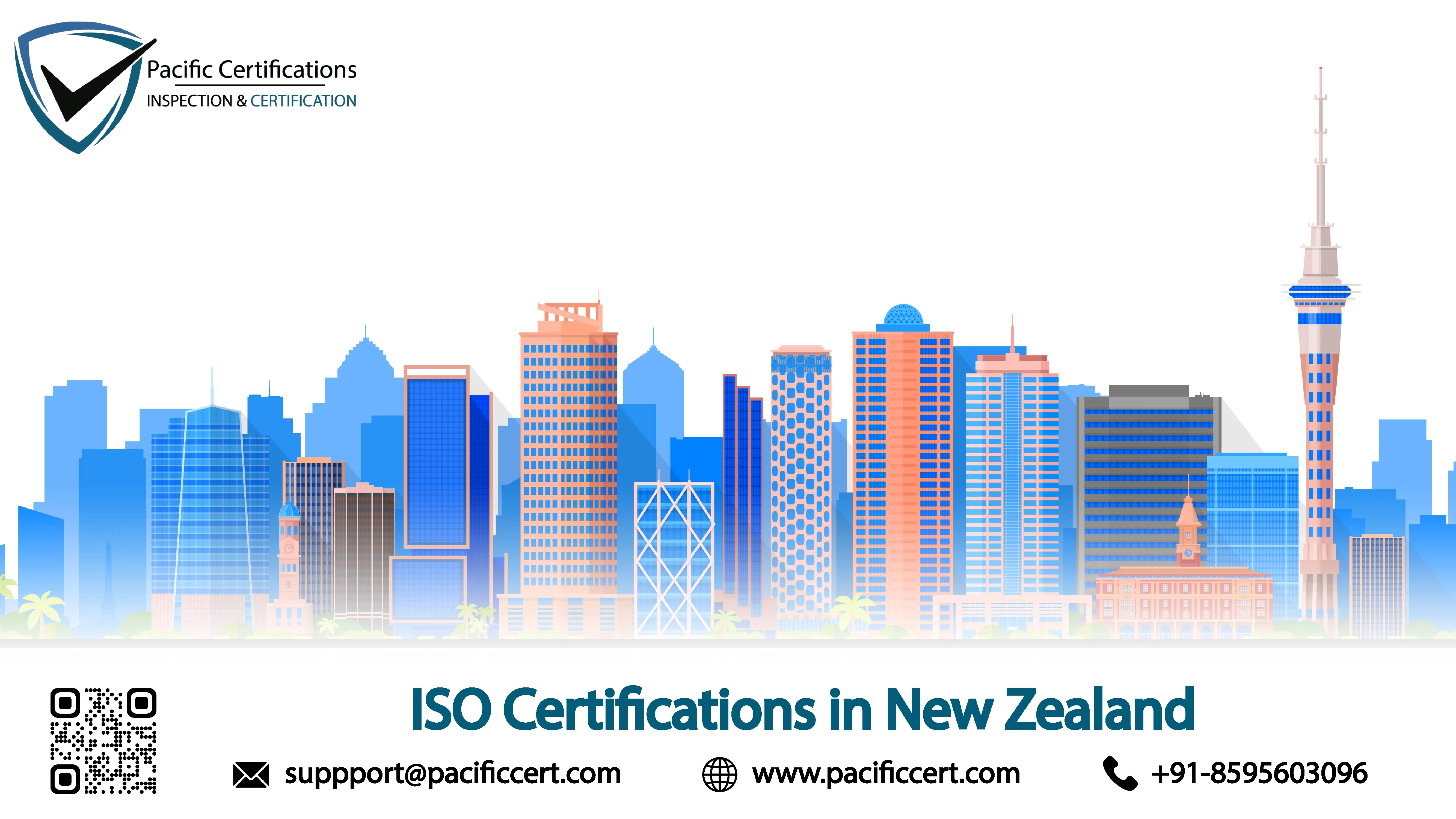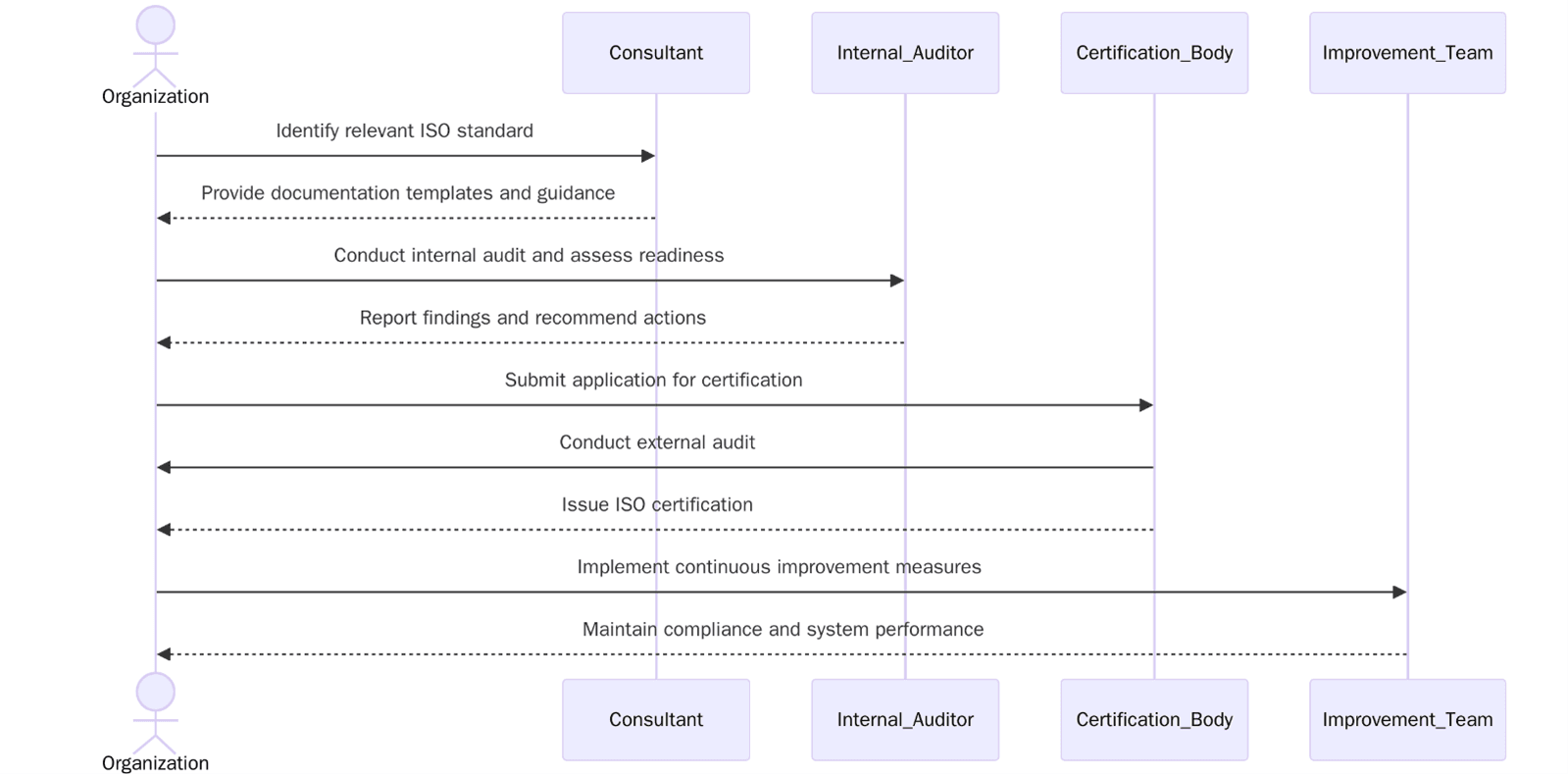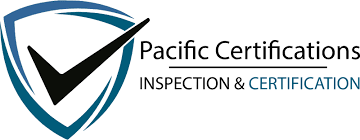ISO Certifications in New Zealand, Popular Standards, Requirements and Benefits

Introduction
New Zealand’s economy blends advanced agriculture and food processing, forestry and timber, tourism and construction, healthcare and laboratories, engineering and logistics and a fast-growing digital/ SaaS ecosystem around Auckland, Wellington, Christchurch, Hamilton and Tauranga. By adopting standards such as ISO 9001 (Quality Management), ISO 14001 (Environmental Management) and ISO 45001 (Occupational Health & Safety), companies in New Zealand can improve efficiency, reduce waste and earn trust from partners and regulators. For growing sectors like ICT, construction and agrifood, ISO certification has become a practical step toward attracting international clients and competing confidently in global markets. These programs provide verifiable assurance on quality, safety, environment, information security and continuity that buyers and lenders accept across ANZ, Asia and global markets.
Schedule a call with Pacific Certifications to begin your ISO certification process in New Zealand today!
Economic Context & Industry Overview
Primary industries in New Zealand, (dairy, meat, horticulture, forestry) remain export engines, while construction and infrastructure continue to reshape urban centres. Tourism recovery, renewable-energy buildout and digital services (SaaS, fintech, data centres) are expanding the services footprint. Across these sectors, procurement teams and regulators increasingly expect management systems as a baseline for supplier approval and due diligence.
Why ISO certifications matter in New Zealand?
Export customers and public projects need proof of stable processes and clear records. Food brands must demonstrate HACCP discipline and traceability; construction and engineering firms must show safe sites and environmental control; cloud and fintech providers must protect data and maintain availability; healthcare and labs must deliver repeatable results. ISO certifications offer a shared language that procurement teams recognise and helps organisations reduce incidents, defects and downtime while keeping evidence ready for audits and renewals.
Popular ISO Standards in New Zealand
Industry focus | Commonly requested standards | Why they matter |
Food & beverage, dairy, meat, seafood, cold chain | ISO 22000, FSSC 22000, ISO 9001 | HACCP discipline, retailer acceptance, export traceability |
Agriculture, horticulture, forestry & timber | ISO 9001, ISO 14001, ISO 45001 | Product consistency, environmental care, safer forestry/farm works |
Construction, civil & engineering | ISO 9001, ISO 14001, ISO 45001 | Quality of works, site safety, environmental controls |
Healthcare, labs & diagnostics | ISO 9001, ISO 15189, ISO/IEC 17025 | Patient confidence and valid results |
SaaS, cloud, fintech, data centres | ISO/IEC 27001, ISO 22301, ISO/IEC 20000-1, ISO/IEC 27701 | Information security, continuity, IT service quality, privacy |
Logistics, warehousing, ports | ISO 9001, ISO 14001, ISO 45001, ISO 28000 | Turnaround time, safe handling, supply-chain security |
Energy & utilities, councils | ISO 9001, ISO 14001, ISO 45001, ISO 50001, ISO 22301 | Service reliability, safer operations, energy performance, continuity |
Certification Process in New Zealand
Preparation starts with an honest view of how work runs today and how evidence is captured. The aim is to make your system auditable without reinventing daily routines. Below are the steps to consider:
- List products services sites headcount and high-risk processes for clear scope
- Map processes end to end to show handoffs records and responsibilities
- Set policy and measurable objectives linked to customer and legal needs
- Assemble evidence packs for production maintenance labs IT and logistics
- Train process owners keep competence matrices and attendance records current
- Calibrate instruments verify methods and file certificates for quick checks
- Run internal audits that sample high-risk tasks and supplier interfaces
- Hold management review with KPIs audit results complaints legal updates and actions
- Schedule Stage 1 for readiness and Stage 2 for implementation verification align multi-site sampling to risk
- Blend on-site checks with remote interviews where suitable to reduce travel time
Keep permits licenses and regulatory reports organized for quick verification
What are the requirements of ISO Certifications in New Zealand?
Begin by grounding the system in how work actually happens on farms, plants, construction sites, clinics and data rooms and align controls with New Zealand norms so evidence stands up in audits, inspections and buyer reviews; below are the key requirements:

- A defined scope that matches products, services and sites.
- A documented management system with controlled procedures and records that match practice.
- Risk assessment with operational controls reflecting real hazards (HACCP, site safety, environmental aspects, privacy/security, energy) and change management.
- Competence matrices and training records for process owners and high-risk roles.
- Completed internal audits with reports, nonconformities, root-cause actions and verified closures.
- Management review with inputs (KPIs, audits, incidents/complaints, legal updates) and tracked decisions.
- Standard-specific artefacts: HACCP & CCP logs (ISO 22000), Statement of Applicability & risk files (ISO/IEC 27001), HIRA/PTW (ISO 45001), aspect-impact registers & objectives (ISO 14001), energy review & EPIs (ISO 50001).
- Legal/other requirements register with permits, inspections, calibrations, monitoring data and supplier compliance evidence.
Tip: Align with WorkSafe NZ guidance for OH&S, regional council consents/monitoring for environmental aspects, MPI verification needs for food chains and the Privacy Act 2020 for data; keep calibration certificates, cold-chain records and supplier test reports ready for sampling.
What are the benefits of ISO Certifications in New Zealand?
Use certification to win tenders, secure retailer approval and stabilise operations. Focus on a short set of KPIs your buyers care about so improvements show up in renewals and audits; below are the key benefits:

- Credibility with exporters, retailers, EPCs, lenders and regulators
- Fewer incidents, defects and unplanned downtime across plants and sites
- Clear roles and training paths for critical tasks and shifts
- Traceable data for due diligence, warranty and claims
- Better supplier control through audits, KPIs and documented actions
- Measurable gains in energy use, waste, emissions, uptime and yield
- Stronger brand signals for ANZ, Asia and global markets
New Zealand’s Digital Strategy for Aotearoa sets a long-term vision to 2032 for trusted, resilient digital services and secure data flows conditions that favour continued uptake of ISO/IEC 27001 (security), ISO 22301 (continuity) and ISO/IEC 20000-1 (IT service quality) among SaaS, fintech and public service providers through the decade. At the same time, the Ministry for Primary Industries’ Situation and Outlook for Primary Industries points to strong horticulture trajectories (including kiwifruit), reinforcing HACCP, temperature integrity and traceability expectations under ISO 22000/FSSC 22000 for exporters and cold-chain operators as they target premium markets.
Challenges Faced in New Zealand
The process of getting certifies can slow down due to practical hurdles tied to resourcing, capability and dispersed operations; below are the key challenges:
- Budgeting for certification fees, audit time and ongoing system maintenance
- Perception of ISO as compliance rather than a performance tool
- Shortage of seasoned internal auditors and system owners in smaller regions
- Stalling on document control, internal audits and corrective-action discipline
- Multi-site and supplier sampling (e.g., forestry, cold chain) complicating logistics and evidence quality
What is the cost of certification in New Zealand?
Certification fees are confirmed after scoping and reflect headcount and risk, the number and spread of sites (e.g., Auckland/Waikato/Bay of Plenty/Canterbury), your standards set (single vs. integrated such as 9001+14001+45001), sector sampling depth (plants/cold chain vs. offices) and travel/logistics. Your proposal itemises Stage 1, Stage 2 and surveillance days, clarifies on-site versus remote activities and highlights any multi-site efficiencies so budgets remain transparent and predictable.
To get a personalized quote, contact [email protected].
What is the timeline for certification in New Zealand?
Timelines depend on document and record readiness, the speed of closing any Stage-1 findings, whether you are single- or multi-site and whether the program is single-standard or integrated. Coordinating audit windows around harvests, construction peaks, maintenance shutdowns, or release cycles—and auditor travel to regional sites—also affects duration. A well-prepared single site can progress from application to decision within one audit cycle, while multi-site or integrated programs typically require additional planning and sampling time.
How Pacific Certifications can help?
Pacific Certifications audits and certifies ISO management systems for food and beverage, agriculture and forestry, construction and engineering, logistics and ports, healthcare, energy and utilities and SaaS/cloud across New Zealand.
We work under recognized accreditation with transparent pricing and an experienced local team that understands site realities and buyer expectations. Our certificates are accepted by procurement portals and international customers and we are recognized by ABIS.
Request your ISO audit plan and fee estimate. We will help you map Stage 1 and Stage 2 timelines and evidence requirements for your organization. Contact us at [email protected] or visit www.pacificcert.com.
Accredited Training Programs
Pacific Certifications provides accredited training programs in New Zealand for ISO 9001, ISO 14001, ISO 45001, ISO 22000/FSSC 22000, ISO/IEC 27001, ISO 22301 and ISO/IEC 20000-1.
- Lead Auditor Training: for professionals auditing these systems across NZ industries.
- Lead Implementer Training: for personnel establishing or improving systems in plants, sites, cold chains, hospitals, utilities and ICT platforms.
These programs are conducted online or onsite, depending on client needs under ISO/IEC 17024 for personnel certification.
To begin the process or request a quotation, contact us at [email protected] or visit www.pacificcert.com.
Our team will guide you through the audit and certification process and planning stages specific to your operations in New Zealand.
Ready to get ISO certified?
Contact Pacific Certifications to begin your certification journey today!
Suggested Certifications –
Read more: Pacific Blogs

